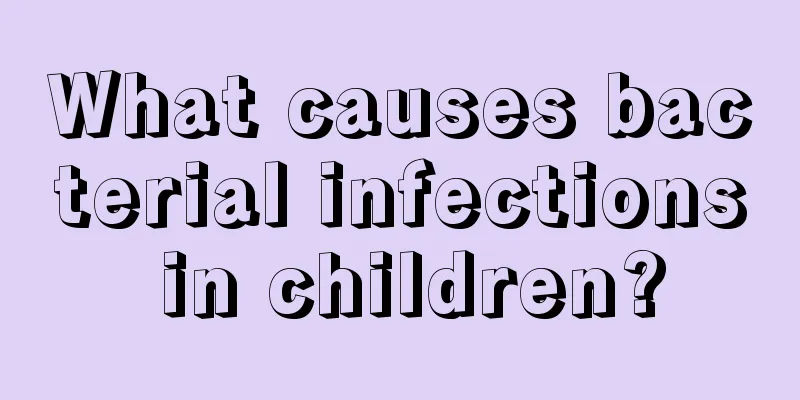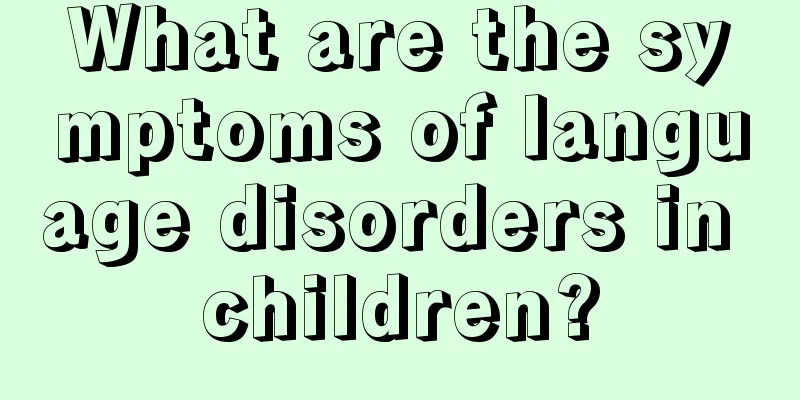What are the dangers of tooth decay for two-year-old babies?

|
It is normal for children to have cavities. Cavities occur because children do not know how to protect their teeth in normal times, and often eat some sugary foods. If they do not brush their teeth in normal times, or brush their teeth carelessly, they may have cavities. However, children's cavities should also attract the attention of parents, because in severe cases, it may cause deformation of the child's face. So what are the hazards of children's cavities? 1. Secondary to other dental diseases. Tooth decay can develop into pulpitis, periapical inflammation, odontogenic cysts or interstitial infection. Apical periodontitis of deciduous teeth can also spread to permanent teeth, leading to incomplete development of the hard tissues of permanent teeth. 2. Cause infectious diseases. When children's tooth decay causes periapical infection, it often becomes an infection lesion and causes systemic infection. Diseases related to this include decreased vision, arthritis, nephritis, myocarditis, and long-term low fever. 3. Cause facial asymmetry. The pain of tooth decay causes children to develop unilateral chewing habits, which can easily lead to facial asymmetry over time. 4. Maxillofacial deformities. Deciduous teeth are the chewing organs of children. The stimulation of chewing function can promote the normal development of the jaw. Without this normal physiological stimulation, the normal development of the jaw is affected, which may cause deformities of varying degrees in the maxillofacial region. 5. Affect growth and development. The pain of tooth decay and the early loss of deciduous teeth will lead to reduced chewing function and weakened gastrointestinal digestion and absorption, causing malnutrition and affecting children's growth and development. 6. Cause psychological barriers. Infancy is the period when children learn language. Complete deciduous teeth help children master correct pronunciation, while decay and early loss of deciduous teeth will make children's pronunciation unclear. Severe caries in the area of primary front teeth make some children shy away from speaking, which is also detrimental to their psychological development. To sum up, after listening to the editor's introduction, I believe everyone has some understanding of the possible consequences of tooth decay in children. Therefore, this requires parents to do a good job of early prevention in normal times. It is best not to let children eat sweets or snacks frequently. Children need to be taken to a regular hospital for oral examinations regularly. |
<<: What are the intellectual development standards for a 9-month-old baby?
>>: How should tooth decay in a two-year-old baby be treated?
Recommend
What is the cause of neonatal bowel sounds?
Every baby comes into this world with the expecta...
Specific introduction to folk remedies for treating children's colds
Nowadays, colds in children are a relatively comm...
How to care for a one-month-old newborn
The body of a newborn baby under one month is ver...
Why is the 9-year-old girl's urine test showing high red blood cell and bacterial counts?
Nine-year-old children are in the period of growt...
What are the treatments for children with cerebral palsy?
Some children's diseases are congenital, whil...
What to do if your baby's hands and feet are allergic
Allergies in babies' hands and feet generally...
What to do if the baby does not defecate for 7 days
Babies’ gastrointestinal tract is not fully devel...
What is the treatment for hernia in children?
Many parents generally do not want to undergo sur...
Things to note when taking care of your baby in summer
When parents are taking care of their babies, the...
Symptoms and treatment of skin rashes in children
Children are the apple of their parents’ eyes, an...
What is the reason for baby milk regurgitation
The main source of nutrition for infants is breas...
The harm of caries in children's deciduous teeth
Most children like to eat sweets, and eating too ...
What causes swollen throat in children?
For children, the weather outside is still very c...
What should I do if my baby coughs a little while sleeping at night?
Coughing is a very common disease. Coughing can o...
What should I do if my baby gets a dent on his forehead?
Sometimes parents are careless, and many babies h...









